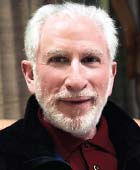Adjusting Our Sails to COVID-19’s Gale

We have had more than a year of social isolation, anxiety about falling ill with COVID-19 (or infecting loved ones), pandemic-driven financial troubles, and uncertainty about whether life will ever be “normal” again. It is, thus, no surprise to see alarming rates of mental health distress and psychiatric disorders, including substance use.
Does that mean everyone should be in psychotherapy, taking an SSRI, or both?
While an industry of online therapists has blossomed, the need to remedy the stress and behavioral conditions related to COVID-19-vastly exceeds the supply of clinicians—even for those inclined to seek professional treatment, which many are not, cannot get an appointment, or cannot afford treatment. Distress is different from disorder; many a disaster (and COVID-19 surely is a disaster) has taught us that it is “normal to feel abnormal in an abnormal time”.
The alternative is not “do nothing.” In 2017, American Psychiatric Association Publishing (APA’s publishing house) released Improving Mental Health: Four Secrets Hiding in Plain Sight (disclosure: I was the author). All four “secrets” to improving our health and mental health are broadly applicable across the diverse populations of our country, feasible (which is not the same thing as easy), and—get this—free.
As COVID-19 continues to plague our lives to some extent, I want to share two of those “secrets” with you. One is The Power of Attachment, and the other is Chronic Stress (stoking chronic multi-organ inflammation) Is the Enemy.
Do you want to live a long and healthy life? If your answer is no, then maybe you do need a therapist. But if it is yes, you need turn only to The Harvard Study of Adult Development, begun in 1938 as The Grant Study with 268 sophomores at its eponymous college, then augmented two years later by The Glueck Study.
These investigators fundamentally asked “What makes for a long and healthy life?” The answer was not fame and fortune—it was enduring and trustworthy relationships. George Vaillant, M.D., joined the study in 1966 and led it from 1972 to 2004. He then handed the reigns to Robert Waldinger, M.D., who continues to lead this remarkable study of human development. If you are tired of reading (not this article, of course), treat yourself to Bob Waldinger’s TED talk, “What Makes a Good Life? Lessons From the Longest Study on Happiness.” You can add to its over 13 million views.
I called this “secret” The Power of Attachment. Ironically, yet for necessary public health reasons, this past year we were all urged to be “socially distant,” the antithesis of what we humans, social animals, need, all the more so during times of disaster, as we are living today.
Better double down on being in touch with whom you care about and who cares about you. Do so frequently, by any and all audio or visual means (even write a letter, remember those?), except, of course, not by literal touch—unless you and others are fully vaccinated.
Elizabeth Blackburn, Ph.D., a molecular biologist at Stanford University, won the 2009 Nobel Prize in Medicine for her discovery of telomeres and the key enzyme associated with their functioning (telomerase). It’s worth knowing what telomeres are since we all wage a lifelong battle with an enemy called chronic inflammation.
Blackburn likened telomeres, the caps on our DNA, to the plastic tips on shoelaces. When intact, our shoelaces don’t unravel, preventing a hazard to walking. Telomeres keep our DNA strands from unfurling, thereby protecting cell division (happening all the time in our bodies) from going awry.
Aging shortens the length of our telomeres, diminishing their protective role in cellular renewal. And so does chronic inflammation, eating away at the tips of our DNA strands. Shorter telomeres increase risk to a bevy of age-related disorders, including heart disease, stroke, diabetes, osteoporosis, dementia, depression, schizophrenia, and addiction.
In Drs. Blackburn and Epel’s book, they proffer that DNA need not be destiny. There are five “ingredients” to a healthier and longer life, which are readily accessible and free, though they take some determination and work. They are secrets hiding in plain sight: (1) exercise, (2) diet, (3) sleep, (4) a variety of mind-body interventions (for example, meditation, yogic [slow] breathing, mindfulness, yoga), and (5) here we go again—caring and trustworthy relationships.
See what I mean by readily accessible and free? Start low, go slow applies not only to medication dosing. Stay the course. The rewards are priceless.
I leave you with this thought: “We cannot direct the wind, but we can adjust our sails.” I can’t imagine better guidance in our COVID-19 era and the years that lie ahead. ■
References
Czeisler MÉ , Lane RI, Petrosky E, et al. Mental Health, Substance Use, and Suicidal Ideation During the COVID-19 Pandemic—United States, June 24–30, 2020. Morb. Mortal. Wkly. Rep. 2020. 69:1049–1057.
Sederer, LI: Crisis Counseling, Not Therapy, Is What's Needed in the Wake of COVID-19. Medscape Psychiatry, April 8, 2020.
Sederer, LI: Improving Mental Health: Four Secrets in Plain Sight. 2017; American Psychiatric Association Publishing, Washington, D.C.
Glueck, Sheldon. Papers, 1916-1972: Finding Aid, Harvard Law School Library, Cambridge, Mass.
Vaillant, George: Adaptation to Life. 1977; Harvard University Press, Cambridge, Mass.
Vaillant, George: Aging Well: Surprising Guideposts to a Happier Life from the Landmark Harvard Study of Adult Development. 2003; Little, Brown Spark, London.
Waldinger, Robert, What Makes a Good Life? Lessons from the Longest Study on Happiness. 2015; TED Talks.
Blackburn, Elizabeth, Epel, Elissa: The Telomere Effect: A Revolutionary Approach to Living Younger, Healthier, Longer. 2017; Orion Spring, London.



